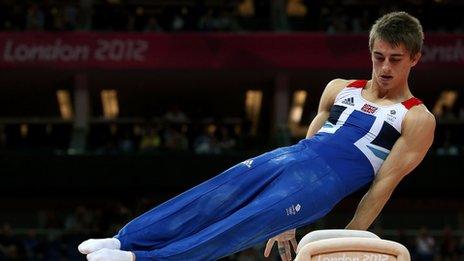GB gymnast Max Whitlock aims to make Olympic history in Rio
- Published
Whitlock wins world all-around silver
Gymnast Max Whitlock could make British history at the Rio Olympics after winning all-around World silver, according to Beth Tweddle.
Britain's most successful gymnast believes Whitlock has the potential to end Team GB's search for a first-ever Olympic gold in the sport.
The last time a British athlete won an Olympic all-around medal was in 1908.
"I 100% believe he can [challenge for major honours]," three-time World champion Tweddle told BBC Sport.
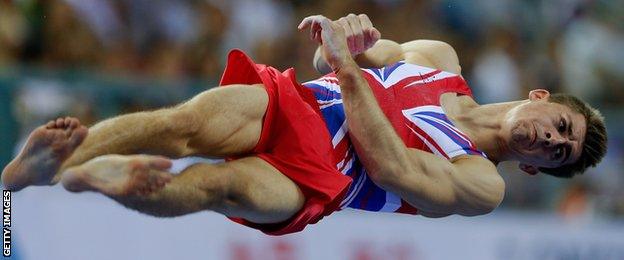
Whitlock is now an Olympic, European, Commonweath and World Championship medalist
"He's super dedicated, focused, has shown the world what he can do and will go back to training even harder now in these two years before Rio."
Despite a hugely impressive year, which included European pommel horse gold and three Commonwealth titles, Whitlock - who also excels on the floor - endured a "tough" start to the World Championships.
He missed out on qualifying for any individual finals and was subjected to abuse on Twitter.
Whitlock on coping with Twitter critics: |
|---|
"You have to try and ignore it, because it's generally only a small number of people and the amount of support I have on Twitter is the fantastic part. The majority of it is really nice stuff and I loved reading after the all-around final - I was up nearly all night going through it - because there was so much that was so positive." |
However, Whitlock was given a reprieve when team-mate Nile Wilson was ruled out of the all-around final - where athletes compete on all six apparatus - due to a wrist injury.
Whitlock's long-term coach Scott Hann believes the gymnast and those around him will have learnt a lot from the struggles he endured.
"With difficult preparations, tiredness and the pressure of expectation from everyone it was just a recipe for disaster," he told BBC Sport.
"He was devastated [after qualification] and tears were shed, but I'm in awe of him because I don't know anyone who could have achieved what he did."
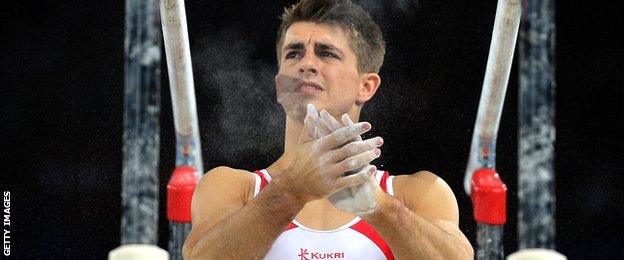
Whitlock admitted a busy year took it out of him
Whitlock admits his body "hadn't full recovered" from the Commonwealths, but impressed himself by finishing just 1.492 points behind his "idol" and five-time World champion Kohei Uchimura of Japan.
"That makes me very proud," he said after coming closer than any previous gymnast to ending Uchimura's hold over the event.
"At the top it's very close and he's just over a mark ahead so it's about perfecting [the routines] and getting them right on the day."
Whitlock's success was important not only for his own confidence but also that of British Gymnastics. He was their sole World medallist in 2014 and, without that reward, the organisation could have suffered a cut in UK Sport funding.
For British Olympian turned BBC Sport commentator Craig Heap, Whitlock must improve on some of his weaker apparatus in order to maintain his current success and even reach new heights.

Uchimura scored 91.965 to claim his fifth successive world all-around crown, with Whitlock scoring 90.473. Japan's Yusuke Tanaka finished third with 90.449.
"If he can increase the difficulty of his rings and high-bar routines, he is a serious contender for an all-around medal in Rio," Heap told BBC Sport.
"What he's achieved though so far will be a massive confidence boost and fuel him for the next two years."
Whitlock and Hann say they have "a plan" of attack for Rio, which could include a revolutionary and "risky" new move on the pommel horse.
However, they will delay making a decision on whether to introduce what is hoped will become known as 'the Whitlock' until nearer 2016.
Whitlock will now take a break from the sport and, while he may return for the start of the World Cup series in November, the British Championships in early 2015 are a more realistic target.
Moves named after pioneering athletes |
|---|
'Belyavskiy' - a double front salto dismount in piked position on the parallel bars, which is named after European champion gymnast David Belyavskiy of Russia. |
'Cruyff turn' - Instead of kicking the ball, Johan Cruyff would drag the ball behind his planted foot with the inside of his other foot, turn through 180 degrees and accelerate away outside the defender |
'Fosbury Flop' was a revolutionary new high-jumping technique invented by 1968 Olympic champion Dick Fosbury, whereby he would leap over the bar backwards. |
- Published12 October 2014
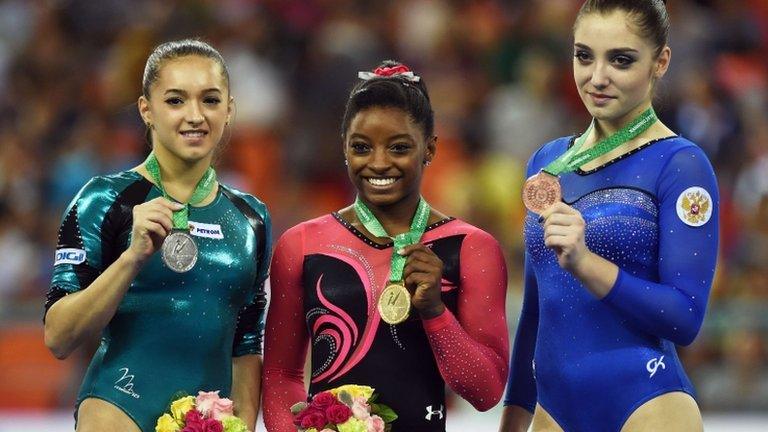
- Published11 October 2014
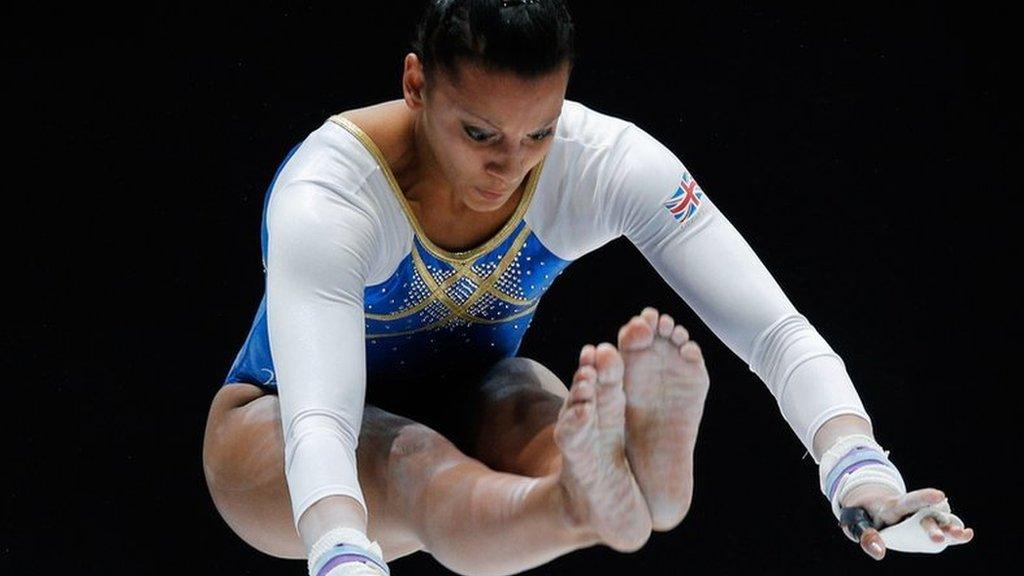
- Published9 October 2014
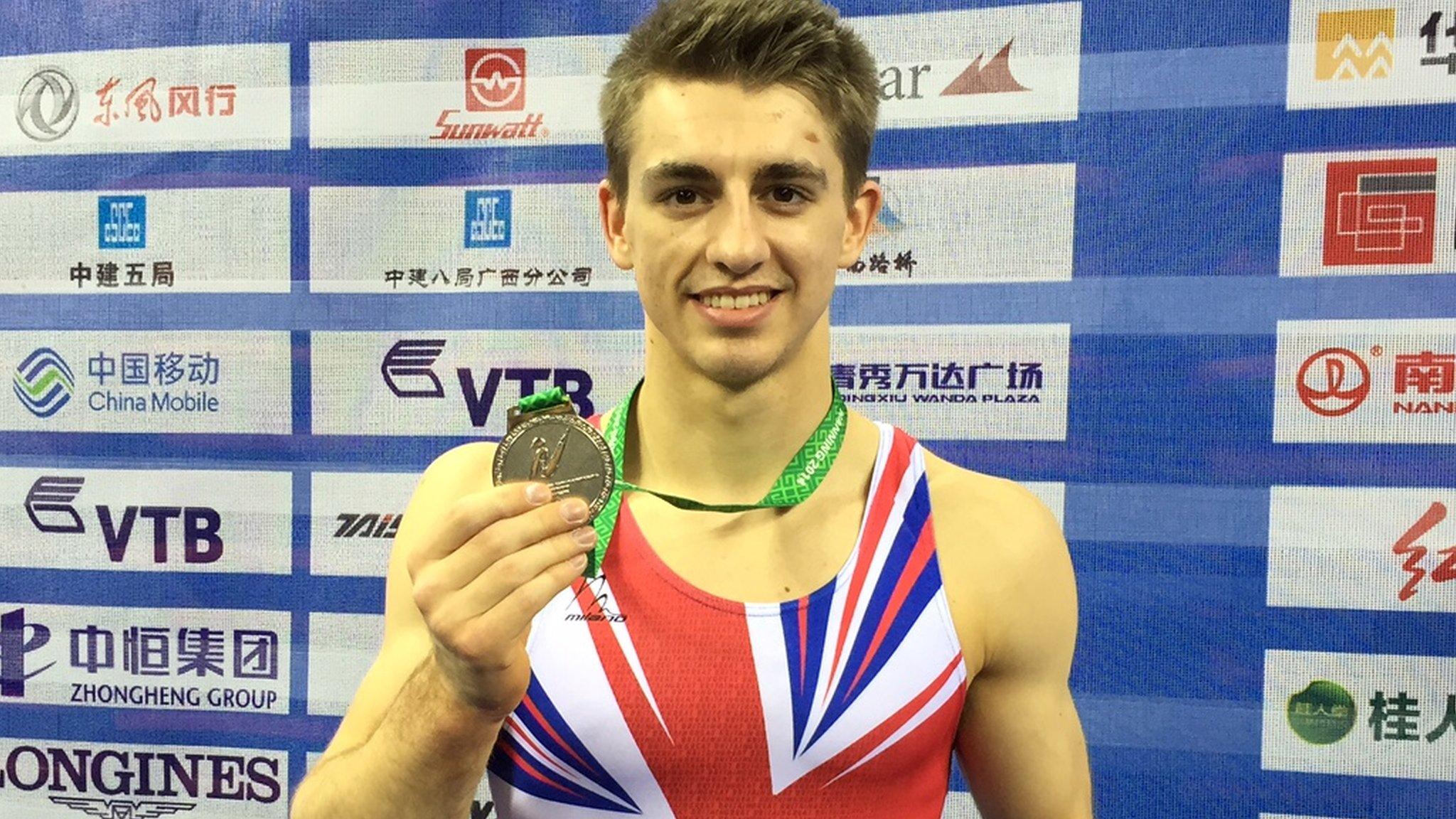
- Published7 October 2014
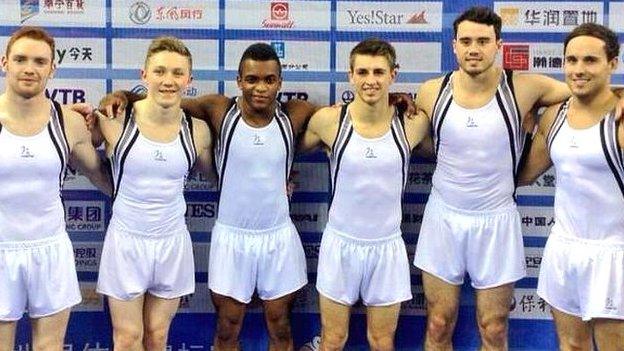
- Published4 October 2014
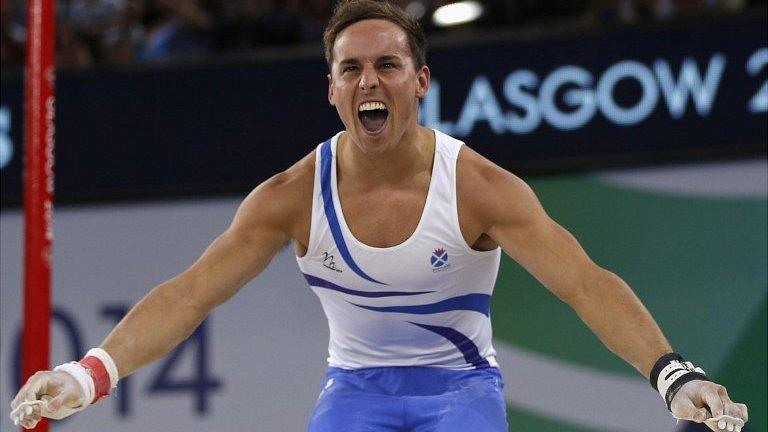
- Published29 August 2014
